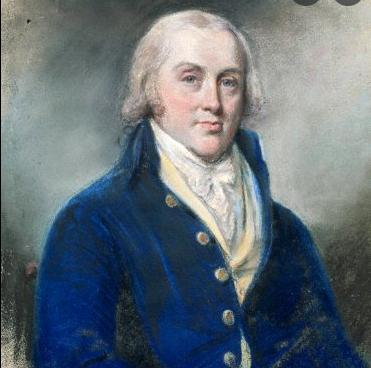Society and the Perniciousness of Sub-Societies: Thoughts by John Taylor of Caroline, 1818

In a work entitled, "Agriculture and the Militia," John Taylor addressed the topic of Slavery. In one part of the subject, he addressed the purposes of society and the problems associated with "sub-societies."
Although, not a name known to many today (as opposed to Thomas Jefferson or Patrick Henry, etc.), John Taylor was prominent in his day: He served in the Virginia state legislature and, although he fought against ratifying the Constitution, he served in the U.S. Senate.
What he offers in this excerpt is a thought-provoking analysis of the challenges inherent in living in a society.
August Glen-James, editor
Anciently, the general ignorance of mankind, caused the frauds of superstition to suffice for working the ends of traitorous sub-societies.
Societies are instituted to control and diminish the imperfections of human nature, because without them it generates ignorance, savageness and depravity of manners. Those best constituted, cannot however cure it of a disposition to command, and to live by the labor of others; it is eternally forming sub-societies for acquiring power and wealth, and to these perfidious, ambitious, avaricious or unconstitutional sub-societies, the liberty and property of the res of the body politic has universally fallen a prey. They are of a civil or military complexion, or of both, as the circumstances of the case may require fraud or force. Anciently, the general ignorance of mankind, caused the frauds of superstition to suffice for working the ends of traitorous sub-societies. As these became exploded, the more intricate pecuniary frauds were resorted to. Now, on account of the increasing knowledge and more prying temper of mankind, military force is united with pecuniary frauds. And hitherto the most perfect society for the public good, has never been able to defend itself against sub-societies in some form for advancing the wealth or power of a faction or a particular interest. Combine with this universal experience, that it is impossible to conceive a form of society better calculated to excite and foster factions or sub-societies, than one constituted of distinct colors, incurable prejudices, and inimicable (sic) interests, and the inferences are unavoidable. If the badges of foolish names can drive men into phrenzy (sic) without cause, will not those which powerfully assail both reason and the senses, create deadly factions.
